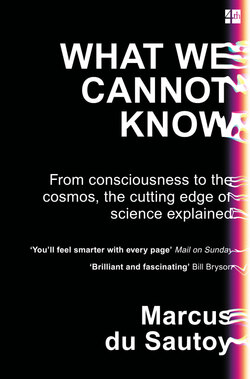Читать книгу What We Cannot Know - Marcus du Sautoy - Страница 30
THE POLITICS OF CHAOS
ОглавлениеBob May is currently practising what he preaches. Or perhaps I should say Lord May of Oxford, as I was corrected by a man in a top hat who greeted me at the door to the peers’ entrance of the House of Lords. May has in recent years combined his scientific endeavours with energetic political activism. He now sits as a cross-party member of the House of Lords, which is where I popped in for lunch to find out how he was doing in his mission to alert politicians to the impact of chaotic systems on society.
Ushered through the peers’ entrance to the Lords by the man in the top hat and policemen with machine guns, I found May waiting for me on the other side of metal detectors and X-ray machines. May has no truck with all these formal titles and in his earthy Australian manner still insists on being called Bob. ‘I’m afraid I messed up and already ate lunch but I’ll come and eat cake while you get some lunch.’ As I ate fish he consumed an enormous piece of House of Lords chocolate cake. At 79, May is as energetic and engaged as ever and was rushing off after his second lunch to a select committee discussing the impact of a new rail link between London and the northwest of England.
Before joining the Lords, May was chief scientific adviser both to John Major’s Conservative government and then subsequently to Tony Blair’s Labour government. I wondered how tricky a balancing act such a political position is for a man who generally is not scared to tell it like it is.
‘At the interview I was told that there would be occasions where I would be called upon to defend the decisions of a minister and how would I feel about that? I said that I would never under any circumstances deny a fact. On the other hand, I’m fairly good at the kind of debating competition where you’re given a topic and according to a flip of a coin you’ve got to argue for either side of the debate. So I said I’d be happy explaining why the minister’s choice was arrived at. I simply wouldn’t agree to endorse it if it wasn’t right.’
A typical mathematical response. Set up the minister’s axioms and then demonstrate the proof that led to the conclusion. A judgement-free approach. That’s not to say that May isn’t opinionated and prepared to give his own views on the subject at hand.
I was curious how governments deal with the problems that chaos theory creates for anyone trying to make policy decisions. How do politicians cope with the challenges of predicting or manipulating the future, given that we can have only partial knowledge of the systems being analysed?
‘I think that’s rather a flattering account of what goes on here. With some notable exceptions it’s mostly a bunch of very egotistical people, very ambitious people, who are primarily interested in their own careers.’
What about May personally? What impact did the discoveries he’d made have on his view of science’s role in society?
‘It was weird. It was the end of the Newtonian dream. When I was a graduate student it was thought that with better and better computer power we would get better and better weather predictions because we knew the equations and we could make more realistic models of the Earth.’
But May is cautious not to let the climate change deniers use chaos theory as a way to undermine the debate.
‘Not believing in climate change because you can’t trust weather reports is a bit like saying that because you can’t tell when the next wave is going to break on Bondi beach you don’t believe in tides.’
May likes to quote a passage from Tom Stoppard’s play Arcadia to illustrate the strange tension that exists between the power of science to know some things with extraordinary accuracy and chaos theory, which denies us knowledge of many parts of the natural world. One of the protagonists, Valentine, declares:
We’re better at predicting events at the edge of the galaxy or inside the nucleus of an atom than whether it’ll rain on auntie’s garden party three Sundays from now.
May jokes that his most-cited works are not the high-profile academic papers he’s published in prestigious scientific journals like Nature, but the programme notes he wrote for Stoppard’s play when it was first staged at the National Theatre in London. ‘It makes a mockery of all these citation indexes as a way of measuring the impact of scientific research.’
